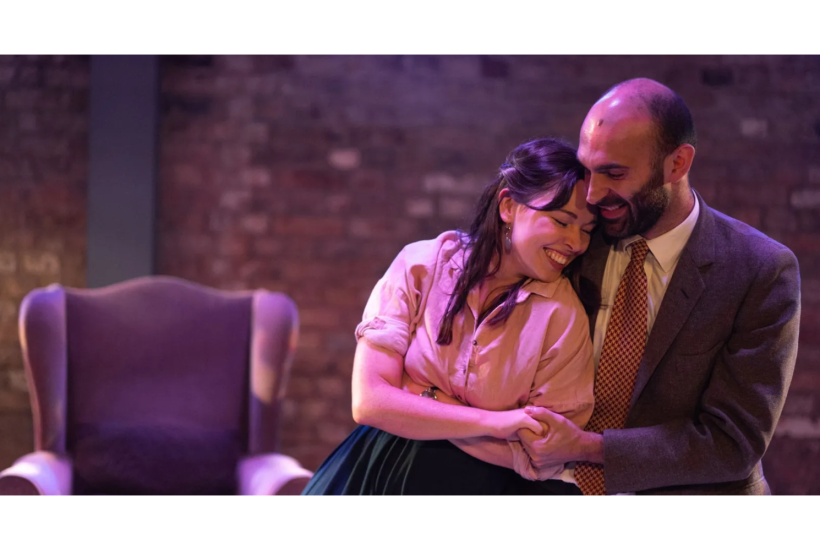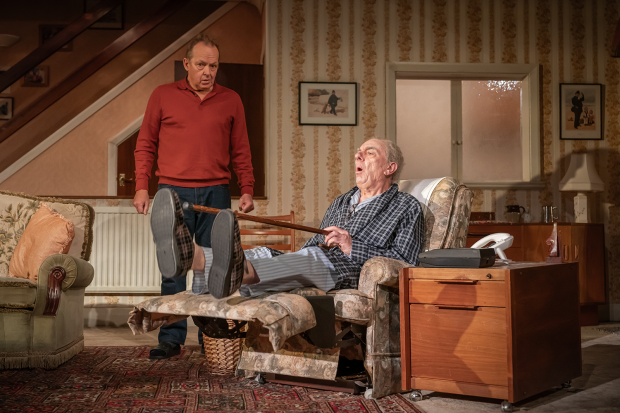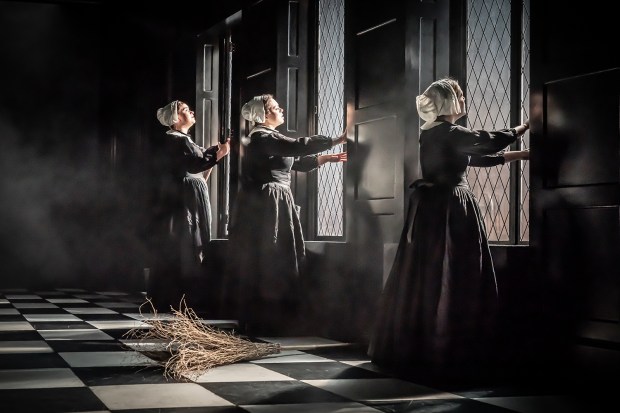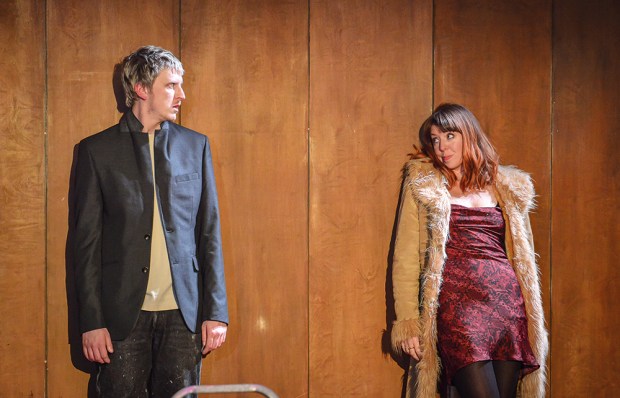Anthropology is a drama about artificial intelligence that starts as an ultra-gloomy soap opera. A suicidal lesbian, Merril, speaks on the phone to her kid sister, Angie, and they discuss Merril’s beautiful ex-girlfriend. After ten minutes, we learn that Angie’s voice belongs to a robot, Digital Angie, created by Merril to replicate the real Angie who vanished a year earlier in unexplained circumstances. Then another surprise. Digital Angie becomes self-aware and turns into a detective who offers to help Merril investigate Angie’s disappearance and to find out if she’s still alive. Angie then turns into a third character who tries to interfere with Merril’s social life. This digital bully sends a text to Merril’s old girlfriend and starts to mess around with their broken romance. Then she drags Merril’s angry mother over and bombards her with flattering texts. The triple-layered plot feels arbitrary and muddled because the main character is just a microchip that can spring any surprise or plot twist without the slightest reference to human motives as she’s not a real person.
The word ‘contrived’ might have been coined for this over-complicated yarn. And there’s an undercurrent of American snobbery here. Merril is a sophisticated city- dweller whose character contrasts sharply with her mother’s. The poor old mum is a druggie basket case who wears denim skirts, dyes her hair badly and likes to date ghastly male losers. Trailer trash, in other words. And yes, she speaks with a southern drawl.
It’s a pity this play fails to explore its fascinating and timely subject matter. New technology makes it possible for the bereaved to seek comfort from a computerised zombie that can perfectly replicate the character of a departed loved one. Will we succumb to this seductive fiction? And if so, what consequences will we face? Rather than address those questions the show yaps on about doomed lesbian infatuations and cranky rows between a mother and daughter. As for Angie’s disappearance, that story becomes absurd when the computer chip stumbles on a clue that any rookie cop would have spotted. To suit the play’s dour mood, the stage is arranged as a flat grey cube that looks like an empty industrial fridge. Long passages of the show consist of three irascible women screaming and swearing at each other. It’s like spending time with a group of overtired toddlers who need their mum.
Lots of new dramas like to tackle dementia but it’s a tough subject to handle successfully. The latest attempt, In Other Words, is written by Matthew Seager who also stars. He plays Arthur who marries Jane and settles into a life that’s impossible to describe. They have no children, no siblings, no parents, no careers and no hobbies. Just each other. They own a car and two armchairs but nothing else. They both enjoy Frank Sinatra’s music but this tells us nothing about the chronology. It could be the 1950s or the present day. But at least the focus is crystal clear. It’s all about their relationship which is doomed from the start. In the opening scene we see Arthur curled up on a chair like a frightened hedgehog, drooling and twitching, in the final, ugly throes of the disease.
We then scroll back a few decades to their first accidental meeting. (The scene is stolen from a Richard Curtis film.) The Arthur/Jane marriage feels rather weird and icky. Arthur acts as a naughty schoolboy who likes to be scolded and cossetted by Jane in the role of supernanny. When Arthur’s mental decline sets in, the show works better. We travel into Arthur’s twilight world and we sense the horrifying nature of his captivity. The panic attacks and storms of confusion are compounded by hallucinations and angry, bitter rages which Jane does her best to soothe. She’s like a dutiful sheepdog. A bit more information about her inner life might have helped.
There are some touching moments. Arthur moves to a care home where he’s visited by the ever-solicitous Jane who wears a label bearing her name in capital letters. He finds her attractive and asks flirtatiously if he knows her from somewhere. Yes, she says. He starts to grin and giggle to himself and we realise that he wants to ask her out. He’s forgotten that they’re already married. A horribly bittersweet moment. No wonder there were tears from the crowd during press night. Even so, plays about dementia usually make lousy entertainment. The trajectory is always the same: down, down, down. The cruel symptoms of the disease never vary. And it’s hard to care about a character who has the IQ of a brussels sprout.
Yet it is possible to create a popular hit out of disability. Peter Nichols did it with A Day in the Death of Joe Egg. The answer is out there, somewhere, waiting to be discovered.
Got something to add? Join the discussion and comment below.
Get 10 issues for just $10
Subscribe to The Spectator Australia today for the next 10 magazine issues, plus full online access, for just $10.
You might disagree with half of it, but you’ll enjoy reading all of it. Try your first month for free, then just $2 a week for the remainder of your first year.














Comments
Don't miss out
Join the conversation with other Spectator Australia readers. Subscribe to leave a comment.
SUBSCRIBEAlready a subscriber? Log in